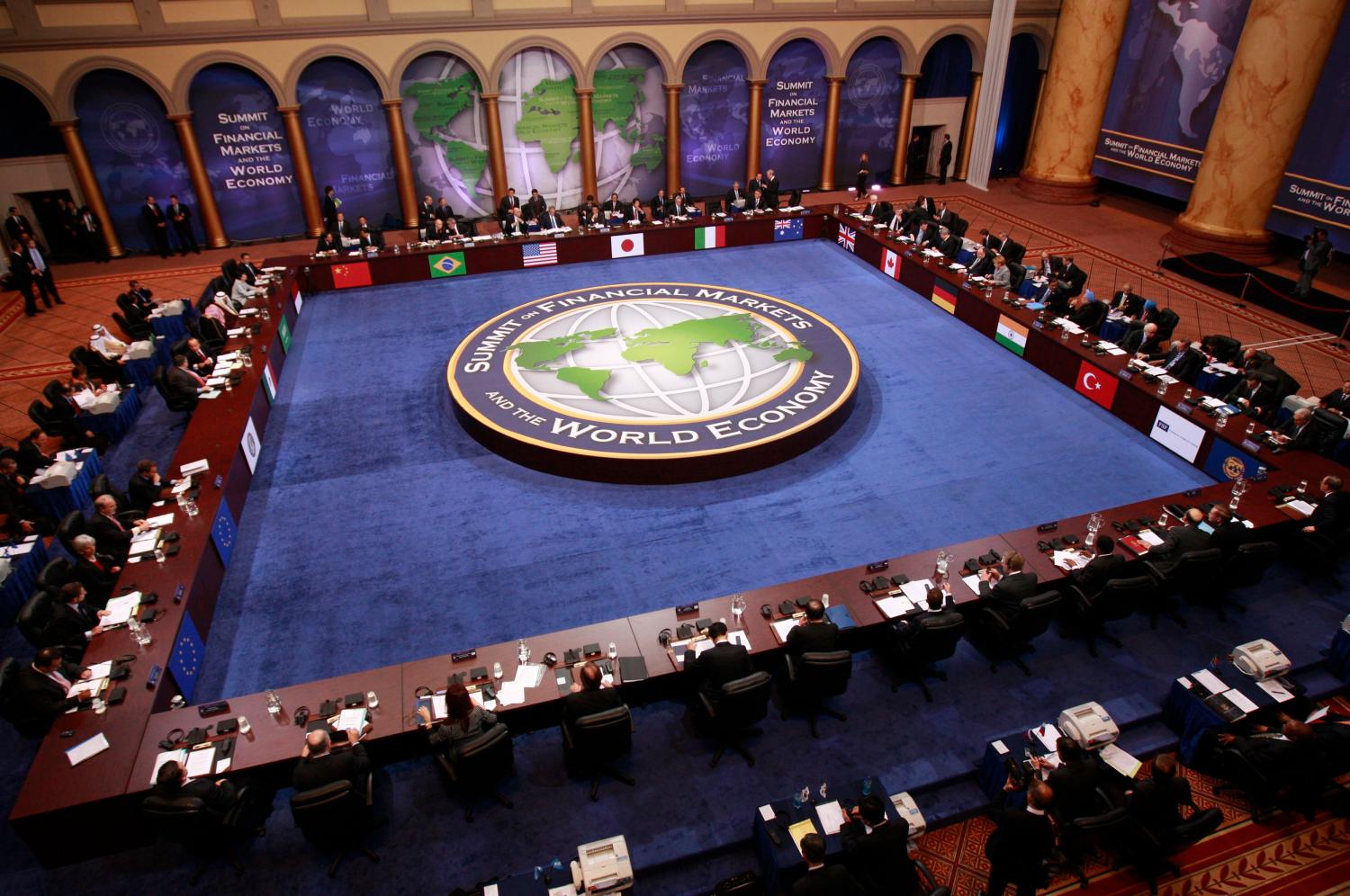Leaders from G-20 countries will gather in Washington this weekend for the first time to address a financial crisis whose evolution highlights a dramatic shift in the global economy. In a new report, Brookings Global experts examine seven key issues at stake and make recommendations for next steps.
Download the full report » (PDF)
Introduction » (PDF)
- Financial Regulation and Supervision » (PDF)
Eswar Prasad outlines the critical issues facing the leaders, including the need to redesign regulatory structures for increasingly complex financial systems and to increase transparency in the operation of specific markets and financial institutions. - Stabilize Emerging Economies » (PDF)
Mauricio Cárdenas notes the need for emerging market policymakers to deploy countercyclical policies in the face of depressed global demand and falling commodity prices and lays out several measures in support. - Reform the Aid System to Fix the Slow-Burning Global Poverty Crisis » (PDF)
Homi Kharas argues that leaders must look to maintain aid flows now more than ever at this critical financial inflection point, particularly as developing nations may be hit hardest and long-term global stability depends as much on reducing poverty as it does on fixing the regulations governing global private capital. - Beyond the G-20: Why the WTO Is More Important than Ever » (PDF)
Paul Blustein argues that the financial crisis proves the World Trade Organization is more relevant than ever for avoiding the beggar-thy-neighbor trade wars that deepened the Great Depression, and recommends that leaders use the summit as an opportunity to reinvigorate the multilateral trading system and refrain from any actions that would undercut the vitally critical contribution of trade to restarting growth. - Now Is the Time for Permanent Governance Changes » (PDF)
Colin Bradford and Johannes Linn applaud this first-ever meeting at the heads of state level of the G-20 countries and call for a permanent shift to the G-20 from the G-8 in order to make the governance of the global financial order more representative and more effective. - Keep the IMF at the Center » (PDF)
Lex Rieffel argues that the IMF must stay at the center of the international financial architecture but can do so only if its responsibilities, funding, and governance are reformed to reflect the growing importance of emerging powers and to apply its powers of surveillance to all members including the United States. - What the U.S. and Asia Should Do: Establish a Global Financial Crisis Secretariat and an Asian Financial Facility » (PDF)
Wing Thye Woo argues that Asia should adopt a regional financial swap facility to complement the IMF, much as the regional development banks complement the World Bank.



